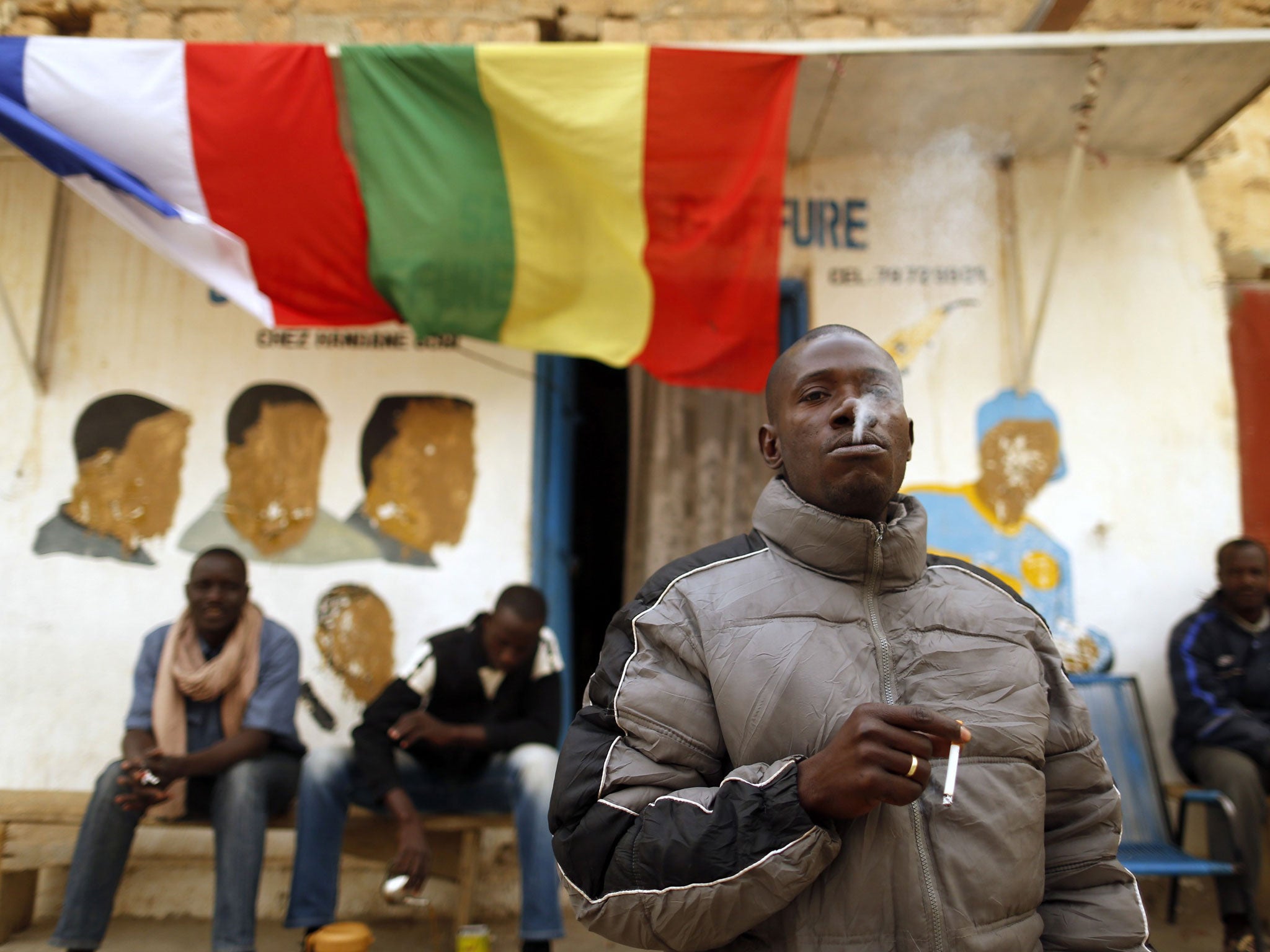The rebirth of Timbuktu: City comes back to life after Islamists flee
Daniel Howden witnesses the return of tailors, jewellers – and even alcohol

Your support helps us to tell the story
From reproductive rights to climate change to Big Tech, The Independent is on the ground when the story is developing. Whether it's investigating the financials of Elon Musk's pro-Trump PAC or producing our latest documentary, 'The A Word', which shines a light on the American women fighting for reproductive rights, we know how important it is to parse out the facts from the messaging.
At such a critical moment in US history, we need reporters on the ground. Your donation allows us to keep sending journalists to speak to both sides of the story.
The Independent is trusted by Americans across the entire political spectrum. And unlike many other quality news outlets, we choose not to lock Americans out of our reporting and analysis with paywalls. We believe quality journalism should be available to everyone, paid for by those who can afford it.
Your support makes all the difference.The Hotel Colombe in Timbuktu closed its doors at the end of March last year. In Mali's capital Bamako an army mutiny had begun while in the Saharan north, the town of Kidal had fallen to rebels using arms looted in the aftermath of Libya's civil war. The Colombe's energetic manager Mohamed Toure thought the death knell had sounded for tourism in Mali.
With no money coming in, he was reduced to one meal a day. "I didn't think I would ever see another European again." He was proven wrong this week as the jihadis fled in advance of the French troops in Mali's fabled city. Now Mr Toure's crumbling hotel is back in business. After one of the darkest years in its long history Timbuktu is coming back to life.
The artisans' market, a hive of weavers, tailors and jewellers, has reopened. Ben Ali, a jeweller, was already back working on a silver ring. Most of his business came from the traditional ceremonies that punctuate Malian life. He pointed to an ornate silver headdress in the display box behind him: "They stopped our women from wearing traditional jewellery," he said. "This is nonsense, they just came in with their sharia. These guys knew nothing about religion, they're just gangsters."
DJ Ali Biko was also back in action across the street. A young looking 19-year-old, his speakers had come out of hiding to blare reggae through the market area. "When the Islamists were here I was really stressed," he said. "We couldn't listen to music."
He chose to play music in this store because it had belonged to Arab traders, whom locals accused of backing the al-Qa'ida affiliates who occupied Timbuktu. With Malian rapper Milles Mots at full blast, Ali joked that seeing his friends dance in the looted wreck of the store was his revenge.
Such small acts of defiance are visible everywhere in a city that was famed before last year for its diversity. In the warren of stalls behind the artisan market, Abou Bakry Moussa was selling things he wouldn't have dared to display one week before. Obama belts featuring the stars and stripes and a grinning American President are outselling Chelsea hats and Real Madrid socks. "We had hidden them before," he said. "People had to ask for them." Upstairs, Radio al-Farouk has become the first station in northern Mali to go back on air. The DJ, in clear defiance of the jihadis who ruled the city until last week, relaunched by playing tracks from the legendary Malian musician Ali Farka Touré. The station should be back in full operation within a month. Four days after the first French soldiers swept into the city, cigarettes and alcohol have also made a comeback.
They were among the first items to be clamped down on by the Islamic police who were set up as the city's sole authority. Shopkeeper Alhadi Cisse, who would buy cigarettes that were smuggled across the border from Burkina Faso, said that he had $3,000 worth of American Legend brand burnt in his store by the jihadis.
Dusty bottles of warm lager and stout have started to appear. Some are for sale at the hotel where wonky tables and chairs have been recovered from store rooms and clanking generators have begun to deliver some flickering light.
The hotel came very close to being demolished, Mr Touré said. "The Islamists... told me that if there was one penny of foreign investment in the hotel they would pull it down." Had he been unable to provide documents proving that the Colombe belonged to his Malian father, it would now be in ruins.
Mr Touré can see the rubble in the mausoleum behind his hotel, where Islamists smashed graves, to know how close that threat came to being carried out.
Join our commenting forum
Join thought-provoking conversations, follow other Independent readers and see their replies
Comments